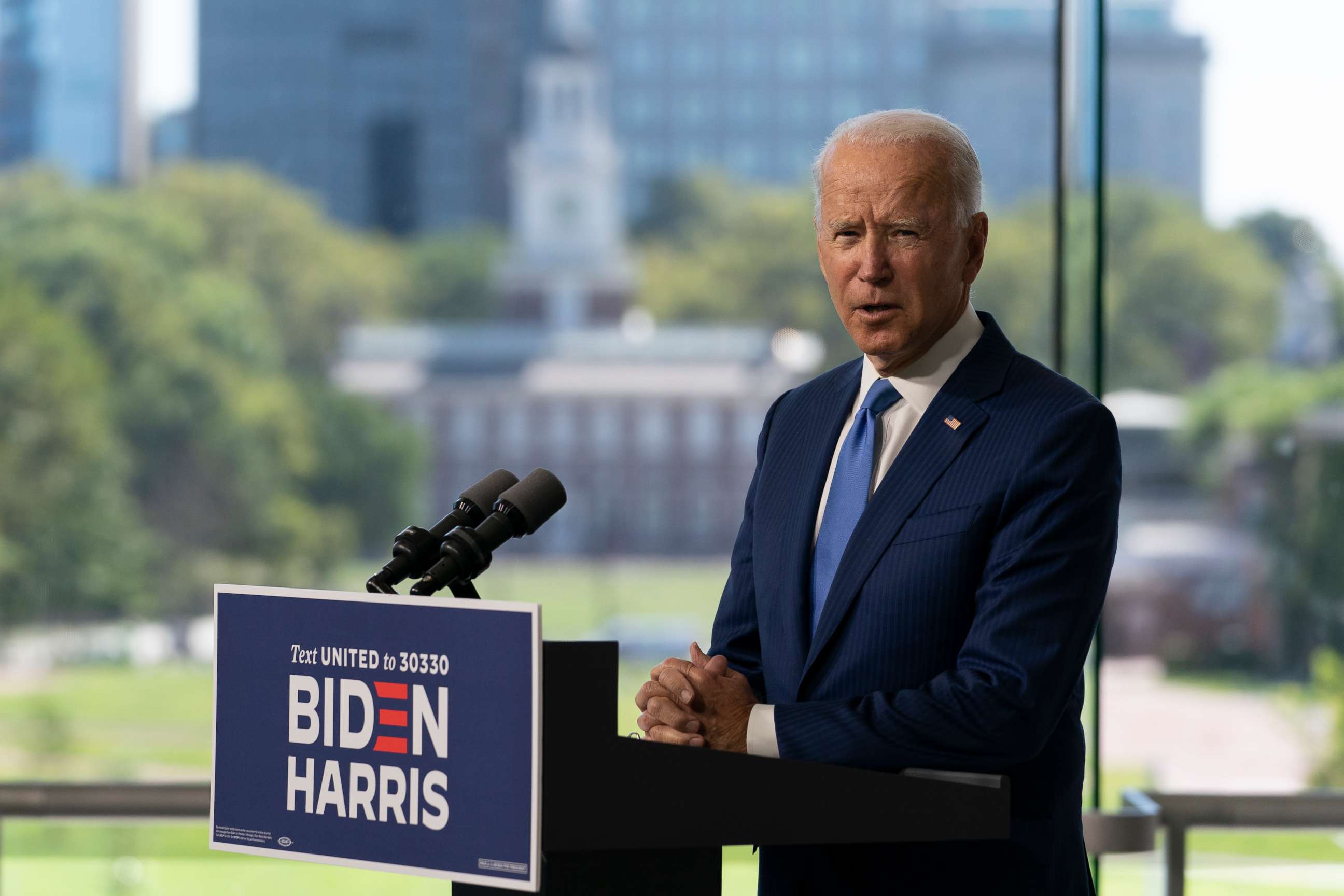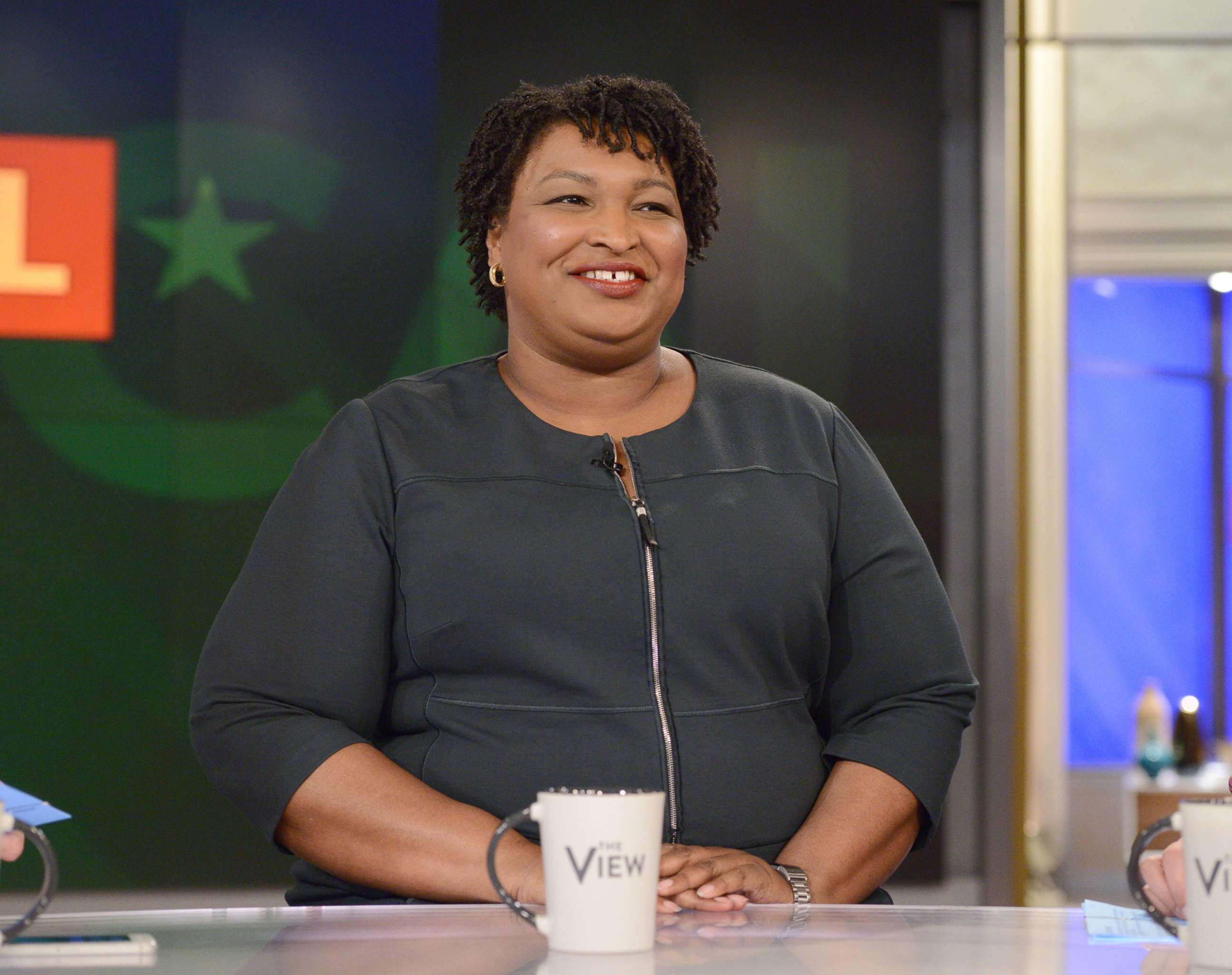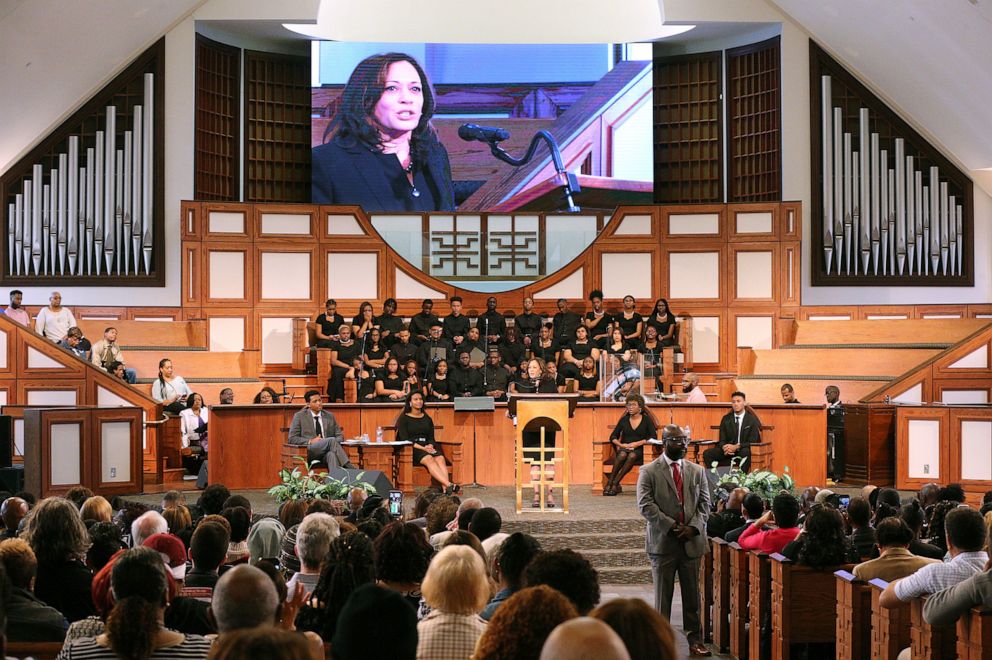Biden campaign targets Georgia, Black men in new ads
The Biden campaign is targeting voters in Georgia and Black men in new ads.
Former Vice President Joe Biden is taking aim at Georgia in new ads targeting the African American community.
The Democratic nominee for president is targeting what his campaign calls 12 "critical states," which include Georgia, for a multi-million dollar digital and broadcast advertising push. The campaign says this week's ad buy will mark the second straight week that they plan on spending over $65 million in an effort to court voters nationally.
Peach State voters will hear new radio ads from former Georgia House Minority Leader Stacey Abrams, Atlanta Mayor Keisha Lance Bottoms, ,and Michael L. Thurmond, chief executive officer of DeKalb County, Georgia.
On Monday, the Biden campaign will unveil two new digital and broadcast ads, the first is called "Shop Talk: Criminal Justice Reform." The ad, which is set in a barbershop, features Black men talking about the criminal justice system and how it impacts them, their communities and their families.
The second ad, titled "Yes She Can," is a play on the popular phrase "Yes we can," which former President Barack Obama said in his Grant Park victory speech in Chicago in 2008. In the ad, the men discuss Sen. Kamala Harris' historic nomination as the first woman and woman of color on the ticket. In the ad the men discuss what Harris' bid means to the African American community and the women in their lives.
The ads are inspired by the Biden campaign's weekly "Shop Talk" roundtable series, in which Black men participate in discussions about the challenges and issues impacting Black men in America.
In last week's roundtable, several Biden campaign surrogates talked about the importance of voting. Jeezy, who is a Grammy-nominated artist, entrepreneur and philanthropist, told the all-Black male panel that he voted because African American men didn't always have the right to vote. "I vote because we didn't have a voice, we didn't have to have an opinion," he said. "We just kind of had to go along with what was going on." He added that that when it comes to issues facing the Black community, such as prison reform and unemployment, voting "gave me that much power; whether the person I want voted for won or not, [it] gave me a voice."
According to Pew Research, only 54% of eligible Black men voted in 2016 compared to 64% of eligible white men.
Former Georgia House Minority Leader Stacey Abrams told ABC News that outreach is critical to reaching Black men.
"I chafe at the notion that Black men aren't doing their part, which is often the subtext," Abrams said. "That's not true. But we can all do better and campaigns have to do a better job of reaching out and engaging communities, particularly Black men. These are voters who care about the future of our country."
Abrams added that candidates need to see Black men as "not only viable voters, but as valuable voters." She said she feels that the Biden campaign has focused its outreach into communities that are often overlooked.

Abrams narrowly lost her gubernatorial bid in 2018 to Republican Brian Kemp, who was then Georgia's Secretary of State. The close race raised multiple allegations of voter suppression, which included allegations of aggressive purging of voter rolls and denying the registration of new voters, as well as long waits at polling places and malfunctioning voting machines. Kemp has vehemently denied doing anything improper.
Following the loss, Abrams focused on her organization, Fair Fight 2020, which works to promote voters' rights and fair election policies ahead of the 2020 election.
Abrams told ABC News that when it comes to the issue of voting rights, she's motivated "because voting is power."
"In a democratic society the ability to select our leaders, and to demand the policies that make our lives more, is grounded in the right to vote," she said. She added that she grew up in a family that was "deeply embedded in the civil rights movement," and that she began working for the rights of others to be able to vote during her first voter registration drive when she was only 17 years old at Spelman College.

Nearly three decades later, Abrams, who was the first Black woman to be a major-party gubernatorial nominee in the United States, is trying to help put the Peach State up for grabs.
"Georgia has been on the cusp of joining swing states for years, but it was always a question of investment," she said, noting the in the 2016 election, with minimal investment compared to states like Florida and Arizona, Hillary Clinton lost the state by less than 5% of the vote. Two years later, Abrams came within 1.4% percent of winning. She says that since her bid, 750,000 people have been added to the voter rolls who were not previously registered.
2020 is already shaping up to look a lot different than 2016, and Abrams says she isn't the only person who's noticed Georgia's evolving status. "Donald Trump has been on the air here since June -- you don't spend money in a state that you think you've already won," Abrams said.
Georgia Deputy Secretary of State Jordan Fuchs told ABC News that, as of last Thursday, 1.1 million Georgia voters have requested absentee ballots for the general election. Of those, 54% are white voters and 30% are Black. Additionally, 25% of those who applied for absentee ballots in Georgia this election did not vote in the 2016 election.

In its effort to win the state, the Biden campaign will also air two previously released ads , including "He Knew," which is focused on President Trump telling journalist Bob Woodward that when it comes to the coronavirus he "wanted to always play it down," according to audio aired on CNN, which obtained the recording of the interview.
In addition, the campaign will air "We're Listening," an ad in which Biden declares "now is the time for racial justice." The ad initially hit airways just hours before Biden traveled to Kenosha, Wisconsin, and spoke to the family of Jacob Blake.
If Biden wins Georgia in November, he will become the first Democratic presidential candidate to win the state since former President Bill Clinton in 1992.
ABC News' Averi Harper and Quinn Scanlan contributed to this report.




